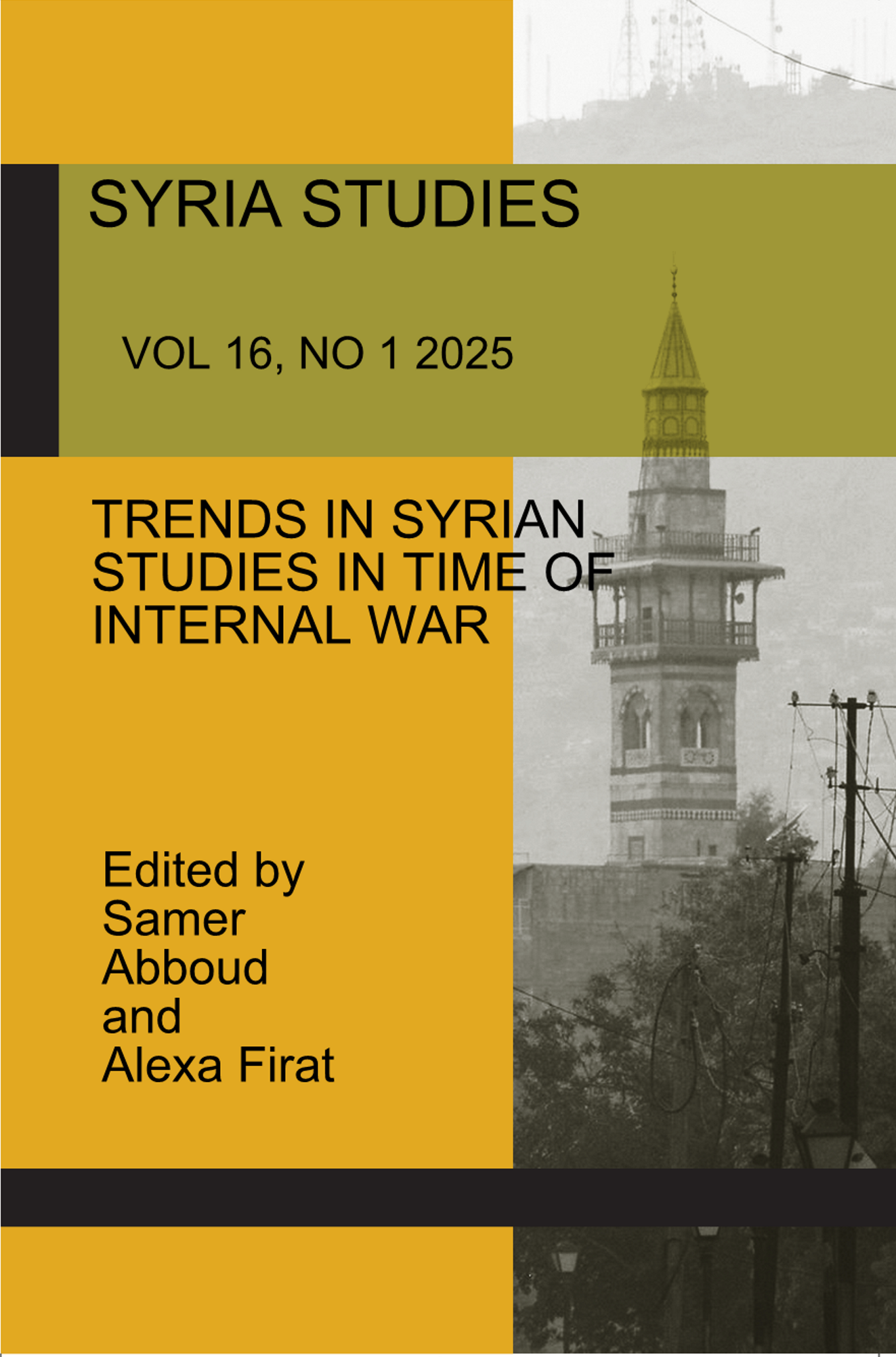Notes from the Field: Methodological Opportunities and Constraints
Main Article Content
Abstract
This paper critically reflects on the methodological and ethical challenges faced by researchers conducting fieldwork on Syria under Bashar al-Assad’s authoritarian regime. Drawing on my own experiences with interviews and archival research across Lebanon, Turkey, and Europe, I explore how war, displacement, and authoritarian legacies reshape access, data reliability, and researcher safety. Rather than treating these conditions as mere obstacles, the paper considers how they fundamentally shape the knowledge production process, and the questions researchers are able—or unable—to ask. Collaborating with Syrian interlocutors—many of whom are navigating trauma, exile, and surveillance—pushed me to reconsider what it means to conduct ethical, accountable research amid profound precarity. The analysis engages the politics of representation, researcher positionality, and the emotional and political labor embedded in fieldwork. I also interrogate the academic structures that privilege certain voices and sites of knowledge over others. While grounded in the Syrian context, the paper speaks more broadly to the dilemmas of conducting research in authoritarian and conflict-affected settings where access is limited, and knowledge is contested. By foregrounding the often-invisible labor and compromises of research, this paper calls for more honest, situated, and politically engaged approaches to studying Syria and similar contexts. In bringing these methodological struggles to the surface, it aims to open space for deeper conversations about ethics, accountability, and power in Middle East research during times of protracted crisis.
Article Details

This work is licensed under a Creative Commons Attribution 4.0 International License.
Authors who publish with this journal agree to the following terms:- Authors retain copyright and grant the journal right of first publication with the work simultaneously licensed under a Creative Commons Attribution License that allows others to share the work with an acknowledgement of the work's authorship and initial publication in this journal.
- Authors are able to enter into separate, additional contractual arrangements for the non-exclusive distribution of the journal's published version of the work (e.g., post it to an institutional repository or publish it in a book), with an acknowledgement of its initial publication in this journal.
- Authors are permitted and encouraged to post their work online (e.g., in institutional repositories or on their website) prior to and during the submission process, as it can lead to productive exchanges, as well as earlier and greater citation of published work (See The Effect of Open Access).
